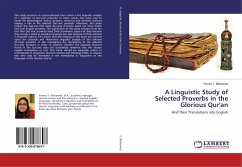In the recent global age, English has become more valued in Japan as a means of international communication. However, traditional grammar translation and audio-lingual methods still remain as a major pedagogy used by the vast majority of Japanese high schools today. Additionally, very little academic literature has been produced on the effect of "practicing" English on a university exam. Therefore, whilst using the Center Pre-Test, a highly-valid mock test of the Japanese national university exam, this book challenges the current English education of Japan. Comparative analysis was conducted between the students who regularly engage in the practical English self-study and those who do not, with a focus on five types of the self-study methods in speaking, listening, watching TV, reading and writing. Consequently, the correlation between practical self-study and the learners' English proficiency on the university exam and several positive attitudes toward English learning were observed. This book is highly recommended and beneficial especially for the researchers and professionals in the field of foreign language teaching and learning.
Bitte wählen Sie Ihr Anliegen aus.
Rechnungen
Retourenschein anfordern
Bestellstatus
Storno








